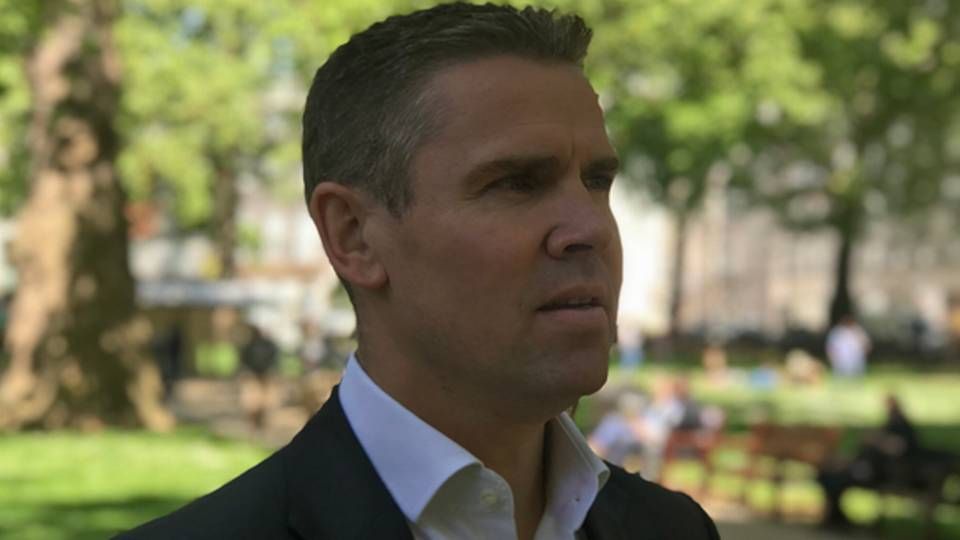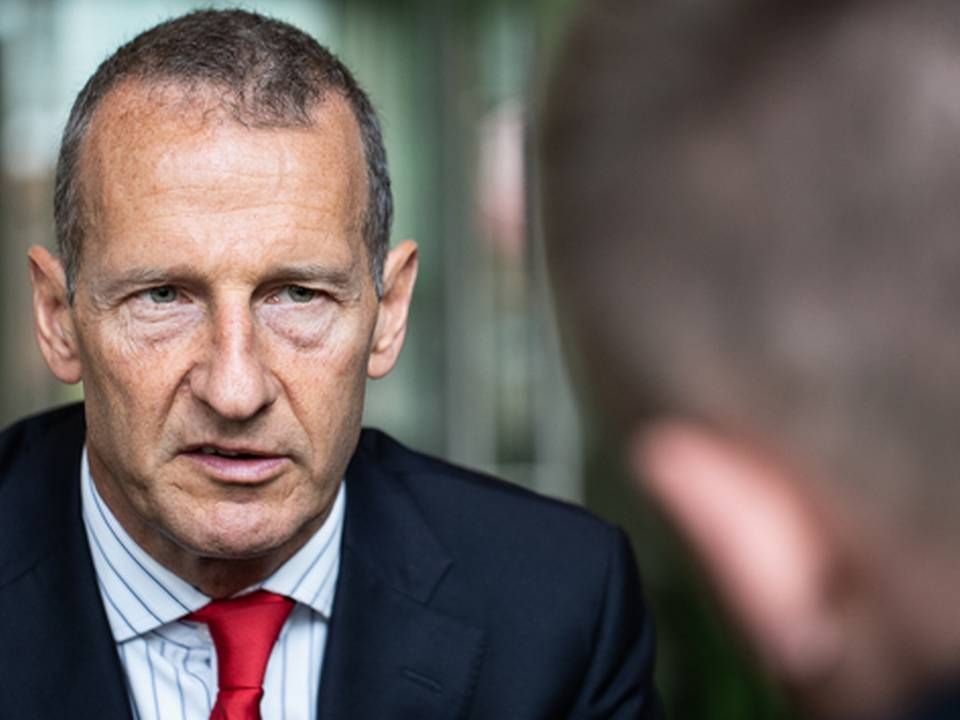Neuberger Berman's Nordic head eyes steady growth following quintupling of regional AUM

Senior representatives from international asset managers frequently participate in various Nordic media, promoting their businesses, their personnel and investment staff to local audiences.
This, however, has not been the case for Neuberger Berman Nordic Head Mark Østergaard. A Google search for his name alongside his employer mostly links to articles stemming from the autumn of 2013, when the former investment banker left Gottex Fund Management to establish Neuberger Berman's Nordic business.
Since then, AUM has increased fivefold across all of the Nordics. One of the most important factors for this development, Østergaard notes, is that he never tries to arrange a meeting with a potential client without being able to offer some of the best performing strategies, with meaningful track records and the right fee levels.
He also requires commitment to the investor from his portfolio management colleagues, including frequent travel and timely replies to all client requests and enquiries. Agreement involves multiple conversations with various involved stakeholders – including portfolio management teams. If certain conditions are not met, he argues that it is better to pass on the opportunity in an honest and open manner.
"We already know if we are in the best part of the peer group or not," he tells AMWatch. "Nordic investors are highly sophisticated and screen the market internally, so, it would thus be a waste of our own and the client's time to set up a meeting. We only apply for mandates where we can offer substantial value."
"If we ended up winning a large mandate and didn't perform as promised, the client would most likely tell its peers, and the spiral would continue, and we could end up losing business in the long term. Then the next time we call, we either wouldn't be taken seriously or the call might not even be answered. Ultimately, what really matters is our ability to be a committed and consistent partner to our clients," he says.
Building the infrastructure
AMWatch meets Østergaard at Hotel Nobis' restaurant in central Copenhagen. As a Head of the Nordic region based in London, he spends around 60 percent of his time on the move, always in the same hotel rooms – and even the same flight departures if possible. That kind of commitment and consistency can make a difference, he argues.
"It's important to be disciplined and structured," he explains. "If we don't reply to clients quickly and adequately, it will most likely have consequences. If we don't have the answer, then we tell the client upfront and say that we will get back with the answer as soon as possible."
A strong team has been a key aspect of that commitment to communication and responsiveness, he argues. The growth he has led in the region has enabled him to develop that team, which now consists of five professionals.
"Everybody has to take responsibility for the team to be successful," says Østergaard. "We are based in London with a US firm. It’s our job to make it feel like we are local."
Be the best
Neuberger Berman offers a wide range of solutions across most asset classes, but where there are gaps that the firm wants to fill, it continually screens the market for the best teams, and then works to persuade them that Neuberger Berman is the place to go to apply their skills. Such an example occurred when the firm announced the formation of its first dedicated emerging markets debt team in 2013, consisting of now 36 investment professionals from Netherlands-based ING. The team is still led by the same person: Rob Drijkoningen.
"We tend to look for best-in-class managers who already have quite impressive profiles when expanding our product portfolio," Østergaard explains, and adds: "It makes a big difference when investors already know our teams and their investment strategies when we start to contact them."
Last year, Drijkoningen told AMWatch about how he and his team use ESG to pinpoint undervalued emerging markets debt opportunities.
"We firmly believe that ESG should be part of the entire investment process, and not just be an overlay. This means the ESG factors we are concerned with have to be quantifiable and financially material. That can be a real challenge in some markets and asset classes, but it’s a challenge our portfolio management teams take very seriously – and we are always completely upfront with clients about our approach to ESG and the challenges it involves.”
Lehman heritage
Before joining Neuberger Berman, Østergaard carried out what he refers to as his own due diligence assessment of the firm, investigating its market position and product offering asset classes.
Neuberger Berman was founded in 1939 in New York as an employee-owned investment firm. In 1999, it listed on the New York Stock Exchange, and, in 2003, it was acquired by another Wall Street hotshot of the time: Lehman Brothers. Management bought the firm out again during the financial crisis.
"It is now 10 years since Neuberger Berman became an independent asset manager again, no longer relying on a bank’s or insurance company’s balance sheet," Østergaard says. "We are solely focused on managing our clients’ money and do not have shareholder pressure to report quarterly. Our USD 323bn of assets is made up of investor capital together with our own partner capital – the firm is now wholly-owned by roughly 420 partners," he adds.
In addition, he mentions that portfolio managers have their own capital locked-in for the long term to their strategies and the company itself. It's what Østergaard describes as "The Carnegie model". "It's a partnership for growth. All employees have skin in the game. It really aligns the incentives of our staff and our investors," he says.
What is the long-term perspective for Østergaard and his team? One of Neuberger Berman’s ambitions is to continue to expand steadily, concentrating on areas like private equity and distressed debt, given increasing client interest in private markets. The Nordics is no exception in this regard. The company is also considering setting up a local office.
"But for now, it's about focusing purely on serving clients," Østergaard concludes. "It's important that we take the time to develop our business in the right way, rather than chasing short-term solutions that might not serve us or our clients well in the future."
ESG rankings help Neuberger Berman pinpoint undervalued EM debt















